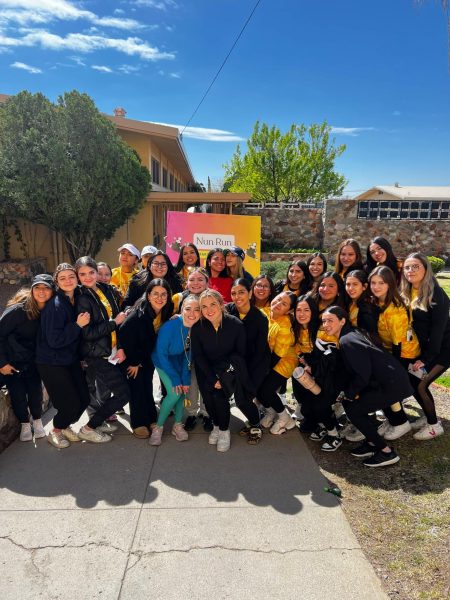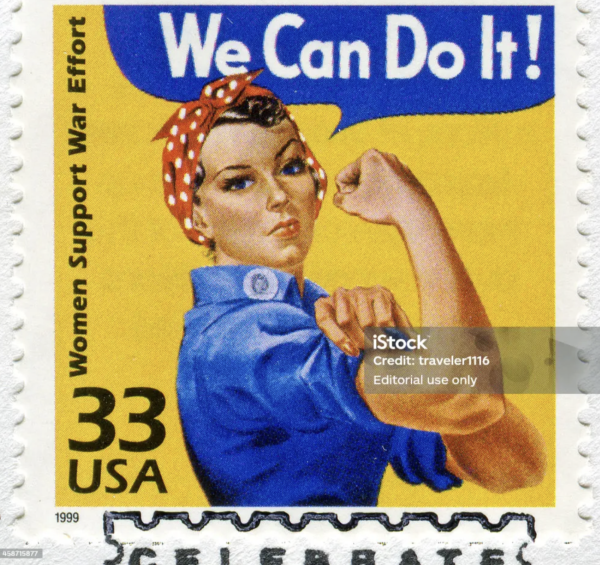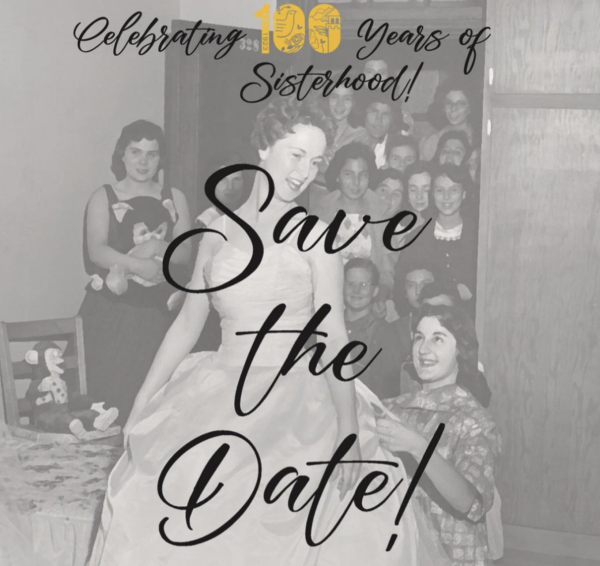Female trailblazers of Black History Month
February 4, 2022
In 1976, President Gerald Ford officially recognized February as Black History Month to “seize the opportunity to honor the too-often neglected accomplishments of black Americans in every area of endeavor throughout our history.”
46 years later, Black History Month continues to commemorate the contributions and achievements of Black people throughout history.
Fighting racism and discrimination, many women have emerged as trailblazers of the movement for racial and gender equality.
Mamie Till-Mobley
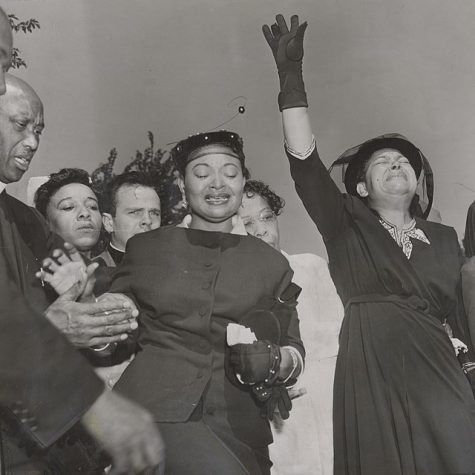
“We are only given a certain amount of time to do what we were sent here to do. You don’t have to be around a long time to share the wisdom of a lifetime. You just have to use your time wisely, efficiently. There is no time to waste.”
– Mamie Till-Mobley
Mamie Carthan was born on November 23, 1921, in Webb, Mississippi.
At the age of two, Mamie and her parents moved to Argo, Illinois, during the Great Migration.
At age 13, Mamie’s parents divorced, prompting her to focus on her academic career.
In 1940, Mamie married Louis Till after graduating from Argo Community High School at age 18.
In 1941, the couple had a son, Emmett Till, but they divorced in 1942 after Louis was abusive towards Mamie.
While visiting family in Money, Mississippi, Emmett was killed by two white men at age 14.
When Emmett’s body was taken home to Chicago, Illinois, Mamie decided to have an open-casket viewing and asked photographers to publish his pictures.
Over four days, nearly 100,000 people visited Emmett’s casket.
Following Emmett’s death, Mamie toured with The National Association for the Advancement of Colored People (NAACP) to raise awareness in 33 cities within a month.
Mamie enrolled at Chicago Teachers College in 1956 and married Gene Mobley in 1957.
She graduated with a degree in education in 1960 and went to Loyola University to receive a master’s degree in administration and supervision.
For 23 years, Mamie worked as an elementary school teacher at Carter Elementary School.
In 1973, Mamie founded “The Emmett Till Players”, a group dedicated to teaching children about the civil rights movement.
Mamie passed away in 2003 due to heart failure, one year before the FBI reopened the investigation of Emmett’s death.
Throughout her life, Mamie impacted the Civil Rights Movement by fighting for change and equality.
Today, Mamie’s legacy continues to live on through the Emmett Till and Mamie Till-Mobley Institute at Northwestern University and her autobiography, Death of Innocence: The Story of the Hate Crime that Changed America.
Information courtesy of Newsweek, PBS, The Emmett Till, and Mamie Till-Mobley National Park Campaign, and Women & the American Story.
Claudette Colvin
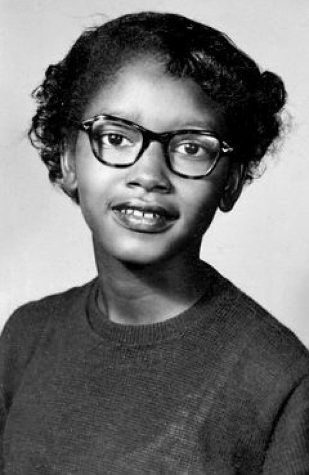
“I knew then and I know now that, when it comes to justice, there is no easy way to get it. You can’t sugarcoat it. You have to take a stand and say, ‘This is not right.’”
– Claudette Colvin
Claudette Austin was born on September 5, 1939, in Montgomery, Alabama.
Claudette’s father left their family, leaving it very hard for her mother to provide for her kids.
As a result of their instability, Claudette and her sister, Delphine, were left in the care of their aunt and uncle in Pine Level, Alabama.
Claudette thought of them as her parents and adopted their last name, Colvin.
She strove for the highest education possible while attending Booker T. Washington High School, which was heavily segregated.
She worked for NAACP’s Youth Council, under Rosa Parks.
On March 2, 1955, at age 15, Claudette rode the bus not knowing she would end up in jail later that day, for doing what Rosa Parks became well-known for nine months later.
When a white man came on the bus, the driver asked Claudette to move to the back of the bus for him to claim her seat.
After learning about the Jim Crow laws in school, Claudette felt empowered to say the ideal was unfair since she had paid for her bus ticket and had rights by law.
Upon her refusal, she was arrested and forcibly escorted by two policemen.
She was soon bailed out by her mother after being charged with segregation and assault for scratching the policemen.
Lawyers testified for Colvin’s case, but the case didn’t go far, although she was put on indefinite probation.
Civil rights leaders suspect that the dissolvement of the case was allegedly due to the darkness of her skin or her teenage pregnancy.
She later gave birth to her son Raymond, who died of a heart attack at age 37.
Parks and other activists raised money for the case to reach the Supreme Court, but her decisions after her arrest were believed to outrage ideals to end segregation.
She was a plaintiff in the Browder v. Gayle case to speak on her experience with bus segregation.
Over the next 35 years, she worked in a nursing home and retired in 2004.
Her legacy has led to the end of bus segregation and her slow recognition as a civil rights pioneer when she was awarded a Congressional Certificate in 2018.
Colvin is now living in a nursing home in Birmingham, Alabama, free from probation at 82 years old.
Information courtesy of BBC News, The Guardian, Biography, NPR, and Congress of Racial Equality.
Madam C.J Walker

“I am a woman who came from the cotton fields of the South. From there, I was promoted to the washtub. From there, I was promoted to the cook kitchen. And from there, I promoted myself into the business of manufacturing hair goods and preparations. I have built my own factory on my own ground.”
-Madam C.J. Walker at the National Negro Business League (NBBL)
Sarah Breedlove was born December 23, 1867, in Delta, Louisiana.
Breedlove was one of five children, the first of her family to be born free.
At age seven she was orphaned and by 10 she moved to Vicksburg, Mississippi, to live with her brother-in-law, Jesse Powell.
In 1882, at age 14, she married Moses Williams to escape Powell’s abuse.
When Moses died in 1887, she was left on her own with a two-year-old daughter so she married a man by the name of John Davis in 1903.
Sarah found a job as a laundress earning less than two dollars a day.
Due to her malnutrition illness, and infrequent bathing she began to suffer from severe dandruff and other scalp ailments.
Her hair problems would soon come to an end when in 1904, she went to the World’s Fair in St Louis, Missouri, and met Annie Malone.
Sarah became a commission agent selling the products for Malone.
With her newfound knowledge of the hair care industry, she began to develop her own product.
In July of 1905, Sara Breedlove and her daughter moved to Denver, Colorado, so that she could continue to sell for Malone while developing her own line.
By 1906, she married her third husband, Charles Joseph Walker, who was a newspaper salesman she met in St. Louis, Missouri, from that day forward she went by the name of Madam C.J. Walker.
Walker would go door-to-door selling her products as well as teaching other black women how to groom and style their hair.
As her business expanded, she created the “Walker System”, which was a training program so that other black women could join her network.
She used this as a way to further the strong beliefs in black women’s need for economic independence.
In 1910, Walker closed her business in Denver, so that her daughter could run the Pittsburgh branch.
Walker was busy setting up the headquarters for the Madam C.J. Walker Manufacturing Company.
She later built factories, hair salons, and beauty Schools to train new workers.
At the height of her career, she employed over 20,000 women.
She became America’s first self-made millionaire.
She used her notoriety and wealth to fight for the rights of all people.
An example of this was when in 1919 she donated $5,000 (which converts to $77,700 in 2019) to support the National Association for the Advancement of Colored People’s (NAACP), anti-lynching fund.
Madam C.J Walker died on May 25, 1919, from kidney failure.
Walker was not only a pioneer in the business field, but she also used her wealth for activism and philanthropy.
Information courtesy of madamcjwalker.com, “Bad Girls Throughout History”, and The Washington Post.
Through their persistence and achievements, we believe that these three women exemplify the four core Loretto values of Faith, Community, Justice, and Respect.
They have broken numerous gender norms and will continue to help future generations of women break barriers against racism and discrimination.
As we celebrate Black History Month, the legacy of civil rights pioneers lives on when their stories are remembered as what helped reach change in the implications of racial segregation.






